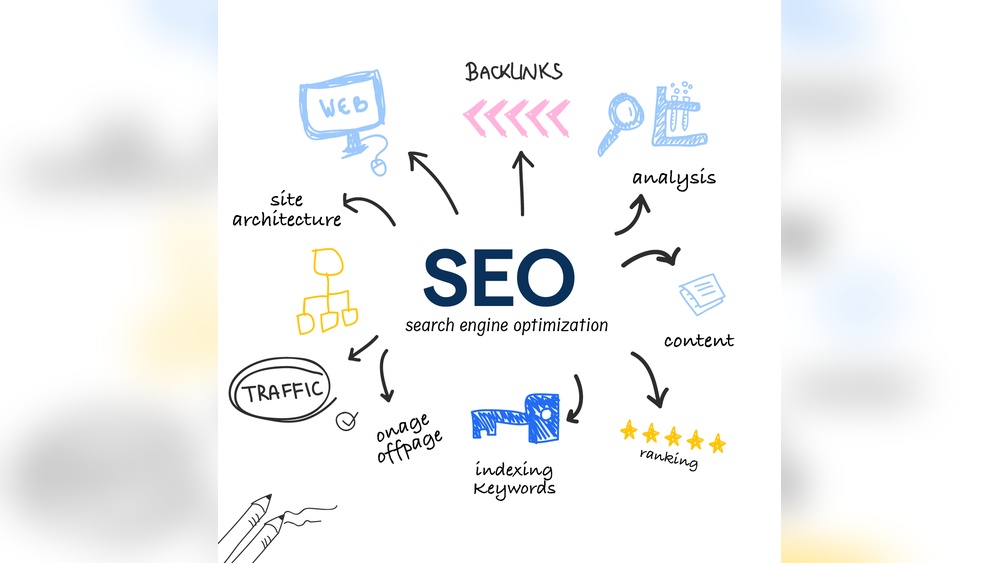
Search Optimization: Boost Your Rankings with Proven Strategies
Are you struggling to make your website stand out? Search optimization is the key to getting your content noticed by the right people.
Imagine your site appearing at the very top of search results when someone looks for what you offer. That’s not just luck—it’s a smart strategy you can learn and use. You’ll discover simple, effective ways to boost your visibility online.
Keep reading to unlock the secrets that can transform your web presence and bring more visitors straight to you.

Seo Fundamentals
SEO Fundamentals form the base of effective search optimization. Understanding these basics helps improve website visibility. It also drives more organic traffic from search engines.
SEO is not just about keywords. It involves various concepts, types of search engines, and how their algorithms work. Learning these parts helps create better content and structure for websites.
Key Seo Concepts
SEO includes on-page and off-page strategies. On-page means optimizing titles, headings, and content. Off-page involves backlinks and social signals. Keywords are the words people type in search boxes. Using relevant keywords increases chances of ranking higher. Site speed, mobile-friendliness, and user experience also affect SEO. Search engines reward websites that load fast and work well on phones.
Types Of Search Engines
There are many search engines, but Google is the most popular. Others include Bing, Yahoo, and DuckDuckGo. Some search engines focus on images, videos, or shopping. Each has its way of showing results. Understanding which search engine your audience uses helps tailor your SEO efforts.
How Search Algorithms Work
Search algorithms decide which pages appear first. They scan websites for keywords, quality, and relevance. Algorithms check if content answers a user’s question. They also consider site trust and authority. Regular updates keep search results accurate and useful. Staying updated with algorithm changes is key to maintaining rankings.
Keyword Research
Keyword research is the foundation of search optimization. It helps identify the terms people use when searching online. Choosing the right keywords improves your website’s visibility and attracts the right visitors.
Effective keyword research guides content creation. It ensures your pages match what users want. This increases the chance of ranking higher in search results.
Finding High-value Keywords
High-value keywords have good search volume and low competition. These terms bring quality traffic to your site. Focus on keywords that customers are likely to use. Think about user intent behind each keyword.
Long-tail Vs Short-tail Keywords
Short-tail keywords are broad and have high search volume. They are more competitive and harder to rank for. Long-tail keywords are longer phrases. They have lower search volume but higher conversion rates. Use a mix of both types for best results.
Using Keyword Tools
Keyword tools help find and analyze keywords quickly. They show search volume, competition, and trends. Popular tools include Google Keyword Planner and Ubersuggest. Use these tools to refine your keyword list. This makes your SEO efforts more effective.
On-page Seo Techniques
On-page SEO techniques help improve your website’s visibility in search engines. These methods focus on optimizing elements within your own site. This ensures search engines understand your content clearly. Better understanding leads to higher rankings and more traffic.
Optimizing Title Tags And Meta Descriptions
Title tags tell search engines what each page is about. Keep titles clear and include main keywords. Avoid long titles; aim for 50-60 characters. Meta descriptions appear below titles in search results. Write concise descriptions that summarize the page’s content. Include keywords naturally to attract clicks. Both title tags and meta descriptions guide users and search engines.
Improving Content Quality
Content must be useful and easy to read. Use simple sentences and clear ideas. Add relevant keywords but avoid keyword stuffing. Break text into short paragraphs for better readability. Include facts, examples, and answers to common questions. Quality content keeps visitors engaged and encourages sharing.
Enhancing Url Structure
URLs should be short and descriptive. Use words that reflect the page content. Avoid long strings of numbers or symbols. Hyphens work better than underscores to separate words. Clean URLs are easier to read and remember. They also help search engines understand your site better.
Internal Linking Strategies
Link to other pages within your website. Use clear and relevant anchor text for links. Internal links guide visitors to related content. They help spread page authority across your site. This improves the ranking potential of important pages. Regularly check and update links to avoid broken ones.
Technical Seo
Technical SEO is the foundation of a strong website. It ensures search engines can easily access and understand your site. Proper technical SEO improves user experience and boosts rankings.
Focus on key areas to make your website faster, mobile-friendly, error-free, and rich with data. These steps help your site perform well in search results.
Improving Site Speed
Site speed affects how visitors and search engines see your website. Fast pages keep users happy and reduce bounce rates. Use tools to check load times and fix slow elements. Compress images, enable browser caching, and minimize code to boost speed.
Mobile Optimization
Most people use phones to browse online. Your site must work well on all screen sizes. A mobile-friendly design adjusts layout and text for small screens. Test your site on different devices to ensure easy navigation and quick loading.
Fixing Crawl Errors
Search engines use crawlers to index your site. Crawl errors block these bots from accessing pages. Use Google Search Console to find and fix broken links, redirects, or server errors. Clean site structure helps bots understand your content better.
Implementing Structured Data
Structured data adds extra information to your site’s code. It helps search engines display rich results like reviews or events. Use schema markup to label important details. This makes your listings more attractive and can increase click-through rates.
Off-page Seo Tactics
Off-page SEO tactics help improve your website’s reputation and authority. These actions happen outside your website but affect your ranking. They show search engines how popular and trustworthy your site is. Strong off-page SEO can bring more visitors and better search results.
Building Quality Backlinks
Backlinks are links from other websites to yours. They act as votes of confidence for your content. Focus on getting links from trusted and relevant sites. Avoid low-quality or spammy links, as they can harm your ranking. Quality backlinks increase your site’s authority and improve search visibility.
Social Media Influence
Social media platforms connect you with a large audience. Sharing your content on social networks can drive traffic to your site. Engaging posts encourage users to share and interact with your brand. Active social media presence builds awareness and supports your SEO efforts.
Online Reputation Management
Online reputation affects how search engines and users see your brand. Respond to reviews and feedback professionally. Encourage positive reviews to build trust and credibility. Monitor your online mentions to address any negative comments quickly. A good reputation enhances your site’s ranking and user trust.
Content Strategies
Content strategies are essential for improving search optimization. They help websites attract and keep visitors. Good strategies focus on creating useful and clear content. This content should meet user needs and encourage engagement. It also helps search engines understand the page better. Effective content strategies combine fresh ideas and regular updates. Using different formats makes content more interesting and easier to digest.
Creating Engaging Content
Start with clear and simple language. Speak directly to your readers. Use short sentences and active voice. Ask questions to make readers think. Include useful tips and facts. Stories and examples keep readers interested. Make content easy to scan with headings and lists. Focus on solving problems your audience has. Engaging content increases time spent on your page.
Updating Existing Content
Check your old content often. Fix broken links and outdated facts. Add new information to keep it relevant. Refresh titles and meta descriptions for better clicks. Update images or videos if needed. Search engines prefer fresh and accurate content. Regular updates can improve your rankings. This also shows visitors your site is active.
Using Multimedia Elements
Use images, videos, and infographics to explain ideas. Multimedia helps break up long text blocks. It makes content more appealing and easier to understand. Use relevant and high-quality visuals. Add captions and alt text for SEO benefits. Videos increase user engagement and time on site. Interactive elements like quizzes or slideshows add value. Proper multimedia use supports clear communication and better SEO.
Measuring Seo Success
Measuring SEO success helps you see if your efforts bring results. It shows what works and what needs change. Tracking key data points guides your next steps. This section explains how to measure SEO effectively.
Tracking Rankings
Tracking rankings means checking your website’s position on search engines. Higher ranks usually mean more visitors. Watch important keywords regularly. Note if rankings improve or drop. Small changes can signal larger trends.
Analyzing Traffic Sources
Traffic sources tell where visitors come from. Look at search engines, social media, and referrals. Search traffic shows SEO strength. Compare different sources to find the most valuable ones. This helps focus your marketing efforts.
Using Seo Analytics Tools
SEO analytics tools collect and show data on your site. Tools like Google Analytics give clear reports. They track visitor behavior, page views, and conversions. Use these insights to improve your SEO strategy. Choose tools that fit your needs and skill level.

Common Seo Mistakes
Many websites struggle to rank well because of common SEO mistakes. These errors can hurt your search rankings and reduce visitor engagement. Knowing these mistakes helps you avoid them and improve your site’s performance.
Keyword Stuffing
Keyword stuffing means using too many keywords unnaturally. It makes content hard to read. Search engines see this as spam and may penalize your site. Use keywords wisely and naturally in your text. Focus on clear and helpful content instead.
Ignoring Mobile Users
Most people use phones to browse the web. A site not optimized for mobile loses many visitors. Slow loading and poor design on mobile frustrate users. Make sure your site works well on all devices. Mobile-friendly sites rank better on search engines.
Neglecting User Experience
User experience includes easy navigation and fast page speed. A confusing or slow site drives visitors away. Search engines favor sites that keep users engaged longer. Simple layout and quick loading improve SEO and user satisfaction.

Frequently Asked Questions
What Is Search Optimization And Why Is It Important?
Search optimization improves website visibility on search engines. It drives organic traffic and boosts online presence. Effective optimization increases user engagement and conversions. It ensures your content reaches the right audience. Overall, it enhances your website’s ranking and credibility.
How Do Keywords Impact Search Optimization?
Keywords connect user queries to your content. Using relevant keywords helps search engines understand your page. Proper keyword placement improves ranking and attracts targeted traffic. Avoid keyword stuffing to maintain readability and SEO value. Researching keywords is essential for effective optimization.
What Are The Key Elements Of Search Optimization?
Key elements include keyword research, quality content, and backlinks. On-page SEO involves meta tags, headings, and URL structure. Technical SEO ensures fast loading and mobile-friendliness. Analytics track performance and guide improvements. A balanced approach maximizes search engine rankings.
How Often Should I Update My Search Optimization Strategy?
Regular updates keep your strategy effective and relevant. Search engines frequently change algorithms, affecting rankings. Review and adjust your strategy every few months. Monitor performance metrics and adapt to new trends. Consistent updates maintain and improve your search visibility.
Conclusion
Search optimization helps websites reach more people online. It improves your site’s ranking on search engines. Good keywords and clear content attract visitors. Regular updates keep your site fresh and relevant. Simple steps can make a big difference. Keep learning and applying new strategies.
Success takes time and steady effort. Stay patient and watch your site grow.




